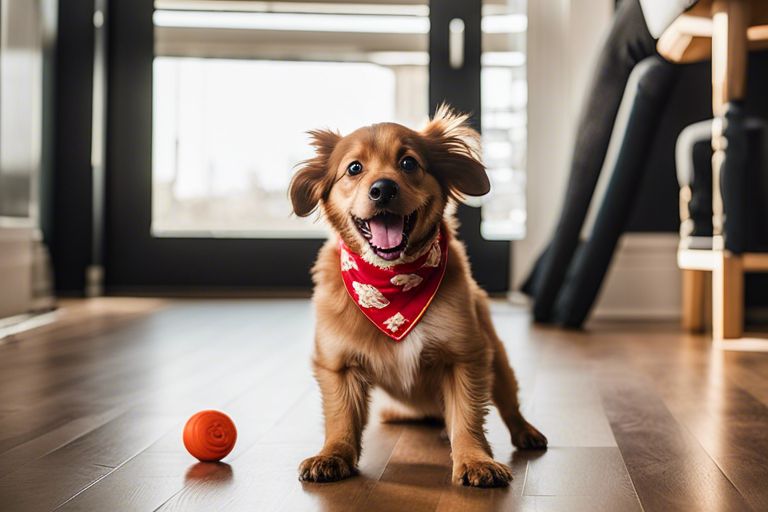Peradventure you have ever wondered whether petite pups have the capability to be trained to perform tricks, the answer is unequivocally “yes.” Despite their small size, tiny dogs can be just as capable as their larger counterparts when it comes to learning and executing tricks. Size does not determine intelligence or trainability, and with the right approach and consistency, even the tiniest of dog breeds can become skilled at performing an array of tricks. From basic commands like sit and stay to more complex tricks like roll over and fetch, small dogs are more than capable of mastering a wide range of skills.
Key Takeaways:
- Small dogs can definitely be trained to do tricks. Despite their small size, small dogs are capable of learning and performing a variety of tricks with the right training and patience.
- Consistency and positive reinforcement are key in training small dogs. Small dogs may require extra patience and positive encouragement during training, but with consistent practice and positive reinforcement, they can learn to perform impressive tricks.
- Start training small dogs at a young age for best results. The earlier you start training a small dog, the easier it will be to teach them tricks. Starting training as a puppy helps establish good habits and behavior early on.
Understanding Small Dog Behavior
Obviously, before training a small dog to do tricks, it’s important to understand their behavior. Small dog breeds have a unique set of behaviors and traits that are important to consider when working with them. Understanding these behaviors can help you train your small dog more effectively and ensure that they are happy and healthy.
Common Behavioral Traits
Small dog breeds often exhibit certain common behavioral traits such as high energy levels, strong-willed personalities, and a tendency to be vocal. They may also display a protective nature and can become easily frightened or anxious. It’s important to take into account these traits when training your small dog, as they can impact how they respond to different training methods and environments.
Differences Between Small and Large Dog Breeds
When it comes to training, small dog breeds can have different needs and behaviors compared to larger dog breeds. Due to their small size, they may be more prone to feeling vulnerable and may require different socialization and training techniques. Small dogs also tend to have higher metabolisms, which can affect their energy levels and attention spans during training sessions. Understanding these differences can help you tailor your training approach to better suit your small dog’s needs.
Training Small Dogs: Basics and Foundations
Even though small dogs may seem delicate and dainty, they are just as capable of learning and performing tricks as their larger counterparts. In fact, training small dogs can be an incredibly rewarding experience for both you and your furry friend. Establishing a strong foundation and teaching essential commands is the first step to unlocking your small dog’s potential for trick training. Trick training not only enhances the bond between you and your dog but also provides mental stimulation and promotes good behavior. According to the American Kennel Club, trick training is also beneficial for dogs’ confidence and can help them overcome shyness and fear.
Essential Commands Every Small Dog Should Know
Teaching your small dog essential commands such as sit, stay, come, and heel is crucial for their safety and well-being. These commands not only help in keeping them under control but also establish your leadership and build trust. Consistency and repetition are key in training these commands, and once your small dog has mastered them, you can move on to more advanced tricks.
Positive Reinforcement Techniques
When training small dogs, it is important to utilize positive reinforcement techniques to encourage and motivate them. Rewarding good behavior with treats, praise, and affection will reinforce the desired actions and create a positive association with training. Additionally, clicker training can be a useful tool in marking the exact moment your dog performs the desired behavior, making the training process more effective and enjoyable for both you and your small dog.
Advanced Tricks Training
Unlike basic tricks, advanced trick training for small dogs requires more patience, time, and dedication. It’s important to set realistic expectations and understand that not all small dogs may be capable of learning advanced tricks. However, with the right approach and consistent training, many small dogs can surprise you with their ability to master complex tricks.
- Preparing Your Small Dog for Complex Tricks
- Step-by-Step Guide to Teaching Popular Tricks
Preparing Your Small Dog for Complex Tricks
Before you begin teaching your small dog advanced tricks, it’s essential to ensure that they have mastered basic obedience commands and have developed strong focus and attention. It’s also important to assess your dog’s physical and mental capabilities to determine which advanced tricks are suitable for them. Start by building a strong bond with your dog and gradually introducing them to the idea of learning more complex tricks. Remember to keep training sessions short and positive to avoid overwhelming your small dog.
Step-by-Step Guide to Teaching Popular Tricks
When teaching your small dog advanced tricks, it’s important to break down the training process into manageable steps. Use positive reinforcement techniques such as treats, praise, and toys to motivate your dog. I recommend using a clicker to mark the desired behavior and reinforce it with a reward. Below is a guide to teaching popular advanced tricks to your small dog:
Dog Trick
| Step | Description |
| Step 1 | Introduce the trick and capture your dog’s interest |
| Step 2 | Break down the trick into small, achievable steps |
| Step 3 | Use positive reinforcement to shape the behavior |
| Step 4 | Generalize the trick to different environments and distractions |
By following this step-by-step approach and being patient with your small dog, you can successfully teach them advanced tricks that will impress and entertain others.

Overcoming Training Challenges
Despite their small size, small dogs can present unique training challenges. It’s important to approach these challenges with patience and a positive attitude. One of the biggest challenges is overcoming stubbornness and distractions, especially in older small dogs. Additionally, training older small dogs can present its own set of obstacles, as they may have ingrained behaviors that are harder to change compared to puppies.
Dealing with Stubbornness and Distractions
When it comes to training small dogs, stubbornness and distractions can be major roadblocks. Small dogs, just like any other breed, can be stubborn at times. This can make it difficult for them to learn new tricks or commands. Additionally, small dogs are often easily distracted, especially when there are other animals or people around. To combat these challenges, it’s important to stay patient and consistent with your training. Use positive reinforcement techniques, such as treats and praise, to keep your small dog focused and motivated.
Training Older Small Dogs versus Puppies
Training older small dogs can be more challenging compared to training puppies. Older small dogs may have already developed bad habits or behaviors that are harder to change. These habits may have been reinforced over the years, making it more difficult to break them. On the other hand, training puppies can be easier in some respects, as they are still in their developmental stages and are more impressionable. With patience and consistent training, older small dogs can still learn new tricks, but it may take more time and effort compared to training puppies.
Can small dogs be trained to do tricks?
Considering all points, I believe that small dogs can indeed be trained to do tricks. With patience, consistency, and positive reinforcement, small dogs can learn and perform a variety of tricks. It’s important to keep in mind the individual temperament and abilities of each dog, but with the right approach and training techniques, most small dogs can become skilled at performing tricks. Whether it’s teaching them to shake, roll over, or jump through a hoop, small dogs can definitely be trained to entertain and impress their owners with their tricks.
FAQ
Q: Can small dogs be trained to do tricks?
A: Yes, small dogs can absolutely be trained to do tricks. With the right approach and consistency, small breeds like Chihuahuas, Pomeranians, and Shih Tzus can learn and perform a wide variety of tricks.
Q: What are some tricks that small dogs can learn?
A: Small dogs can be trained to do a range of tricks, including sit, stay, lie down, roll over, shake, speak, play dead, fetch, and even agility activities such as weaving through poles or jumping through hoops. They can also be trained to perform more complex tricks with patience and practice.
Q: How can I train my small dog to do tricks?
A: The key to training small dogs to do tricks is positive reinforcement and consistency. Use small, tasty treats as rewards and make training sessions fun and engaging. Break down tricks into manageable steps, and practice them in short sessions several times a day. Patience and a calm, positive demeanor are essential for successful training.



